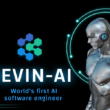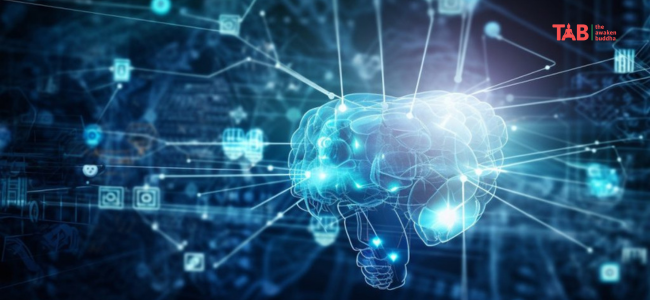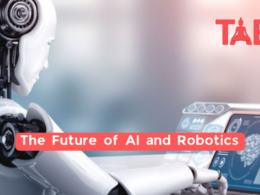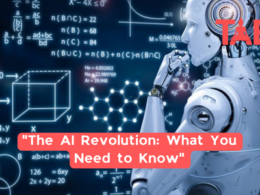Artificial intelligence (AI) has become a groundbreaking technology that is revolutionizing various industries, and one of the sectors benefiting greatly from its potential is healthcare. With the ability to process vast amounts of data, recognize patterns, and make informed decisions, AI can transform how medicine is practiced. In this article, we will explore the promising impacts of AI in medicine and how it is reshaping the future of healthcare.
I. Introduction to AI in Medicine

Embracing the Power of Artificial Intelligence
Artificial intelligence in medicine uses advanced algorithms and machine learning techniques to analyze complex medical data and assist healthcare professionals in diagnosis, treatment, drug discovery, and more. By combining human expertise with AI capabilities, healthcare systems can achieve enhanced precision, efficiency, and patient outcomes.
The Rise of Medical Imaging
One of the significant areas where AI is making a profound impact is medical imaging. Through deep learning algorithms, AI systems can analyze medical images such as X-rays, MRIs, and CT scans with remarkable accuracy. This enables radiologists to detect abnormalities and make diagnoses more effectively, leading to earlier detection of diseases and improved treatment planning.
Precision Medicine and Personalized Treatments
AI also plays a crucial role in precision medicine, where treatments are tailored to individual patients based on their genetic makeup, lifestyle, and other factors. By analyzing extensive genomic data and patient records, AI algorithms can identify potential risk factors, predict disease progression, and suggest personalized treatment plans. This approach holds immense promise for delivering targeted therapies and improving patient outcomes.
Streamlining Administrative Tasks

Beyond clinical applications, AI is transforming the administrative aspects of healthcare. Intelligent systems can automate administrative tasks such as patient scheduling, billing, and data entry, freeing healthcare professionals’ time to focus on direct patient care. By reducing administrative burdens, AI enables more efficient workflows and enhances healthcare delivery.
II. AI Advancements in Disease Diagnosis
Early Detection and Diagnoses
Early detection is often critical in successfully treating various diseases. AI algorithms excel at analyzing vast datasets and identifying subtle patterns that might go unnoticed by human clinicians. By leveraging machine learning techniques, AI systems can assist in the early detection of conditions such as cancer, cardiovascular diseases, and neurological disorders, leading to timely interventions and improved patient outcomes.
Improving Diagnostic Accuracy
In addition to early detection, AI can enhance diagnostic accuracy. AI algorithms can provide healthcare professionals with additional insights and suggestions during the diagnostic process by analyzing patient data, medical records, and relevant scientific literature. This collaborative approach can reduce diagnostic errors and ensure more accurate and timely diagnoses.
Augmenting Pathology and Radiology
Pathology and radiology are two areas of medicine where AI is significantly transforming diagnostic practices. AI algorithms can analyze tissue samples and pathology slides, aiding pathologists in detecting cancerous cells and providing prognostic information. Moreover, AI-powered algorithms can assist radiologists in detecting abnormalities in medical images, enabling faster and more accurate diagnoses.
III. Enhancing Drug Discovery and Development
Accelerating Drug Discovery
The traditional process of drug discovery and development is time-consuming and costly. AI offers innovative solutions to expedite this process by analyzing vast amounts of biological and chemical data, predicting drug-target interactions, and identifying potential candidate molecules. By leveraging AI, researchers can narrow the search space, accelerate drug discovery, and bring novel therapies to patients more efficiently, addressing unmet medical needs.
Personalized Drug Therapy
AI enables personalized drug therapy by leveraging patient data and genetic information to optimize treatment plans. By considering individual variations in drug metabolism, genetic predispositions, and potential drug interactions, AI algorithms can help healthcare professionals determine the most effective and safe medication for each patient. This personalized approach minimizes adverse reactions and maximizes therapeutic benefits.
Repurposing Existing Drugs
AI algorithms can also identify opportunities for drug repurposing, where existing drugs are utilized for new indications. By analyzing vast databases of drug properties and disease characteristics, AI systems can identify potential matches that could be explored for alternative treatments. This approach saves time and resources and expands the possibilities of finding effective treatments for various conditions.
IV. Transforming Patient Care and Monitoring
Remote Patient Monitoring
AI-powered devices and wearable technologies are revolutionizing patient care by enabling remote monitoring and real-time data analysis. These devices can track vital signs, medication adherence, sleep patterns, and other health-related parameters, providing valuable insights to patients and healthcare providers. AI algorithms can analyze this data to detect abnormalities, predict health risks, and intervene proactively, promoting preventive care and reducing hospital readmissions.
Virtual Assistants and Chatbots
AI-driven virtual assistants and chatbots are improving patient experiences and access to healthcare information. These intelligent systems can provide personalized medical advice, answer frequently asked questions, and guide patients in self-care management. By offering 24/7 support, virtual assistants enhance patient engagement, improve healthcare literacy, and alleviate the burden on healthcare resources.
Predictive Analytics for Proactive Care
AI analytics and predictive modeling enable proactive care by identifying high-risk patients and predicting potential health complications. By analyzing patient data, medical records, and population health trends, AI algorithms can assess the likelihood of specific health outcomes, such as hospital readmissions or disease exacerbations. This information empowers healthcare providers to intervene early, implement preventive measures, and improve patient outcomes.
V. Ethical Considerations and Challenges
Privacy and Data Security
Implementing AI in healthcare raises concerns about patient privacy and data security. As AI systems rely on vast amounts of sensitive patient data, ensuring robust security measures, strict data anonymization, and compliance with privacy regulations is crucial. Striking a balance between data accessibility for AI advancements and protecting patient confidentiality is essential to maintaining public trust in AI-driven healthcare solutions.
Bias and Fairness in AI Algorithms
AI algorithms are only as reliable as the data they are trained on. Without careful attention, biases present in the data can be perpetuated and amplified by AI systems, leading to disparities in healthcare delivery. Addressing bias and fairness concerns is crucial to continuously monitor and refine AI algorithms to ensure equitable and unbiased patient outcomes.
Integration and User Acceptance
The successful integration of AI into healthcare systems requires collaboration and acceptance from healthcare professionals, patients, and regulatory bodies. As AI technologies evolve, comprehensive training programs, education on AI capabilities and limitations, and transparent communication are necessary to foster trust and encourage widespread adoption.
Conclusion
The promising impacts of AI in medicine are transforming healthcare as we know it. From improving disease diagnosis and personalized treatments to enhancing drug discovery and revolutionizing patient care, AI holds tremendous potential to enhance patient outcomes, increase efficiency, and reshape the future of healthcare delivery. However, it is crucial to address ethical considerations and privacy concerns and ensure fair and equitable use of AI to realize its benefits.
FAQs
1. Is AI going to replace healthcare professionals?
No, AI is not meant to replace healthcare professionals. AI is designed to augment and support healthcare professionals’ decision-making processes, diagnosis, and treatment plans. It is a powerful tool that complements human expertise, allowing for more accurate and efficient healthcare delivery.
2. Can AI algorithms be biased in healthcare?
AI algorithms can exhibit biases if trained on biased or incomplete datasets. It is crucial to ensure that AI algorithms are developed using diverse and representative datasets and rigorous testing and validation procedures are followed to identify and mitigate biases. Regular monitoring and updates are necessary to minimize biases and ensure fair and equitable outcomes in healthcare.
3. How does AI improve patient monitoring?
AI enables remote patient monitoring through wearable devices and sensors. These devices collect data on vital signs, activity levels, and other health-related parameters. AI algorithms analyze this data in real-time, providing valuable insights into patients’ health status. Healthcare providers can use this information to detect anomalies, predict potential health risks, and intervene proactively, leading to better patient care and improved health outcomes.
4. What are the challenges of implementing AI in healthcare?
Implementing AI in healthcare faces several challenges. Privacy and data security concerns must be addressed to protect patient information. Ensuring fairness and lack of bias in AI algorithms is essential to avoid disparities in healthcare outcomes. Integrating AI into existing healthcare systems requires acceptance from healthcare professionals, patients, and regulatory bodies. Overcoming these challenges requires collaboration, education, and continuous improvement.
5. How can AI improve drug discovery?
AI accelerates drug discovery by analyzing vast amounts of biological and chemical data. It predicts drug-target interactions, identifies potential candidate molecules, and expedites the search for effective therapies. By leveraging AI, researchers can streamline the drug discovery process, reduce costs, and bring innovative treatments to patients faster.










